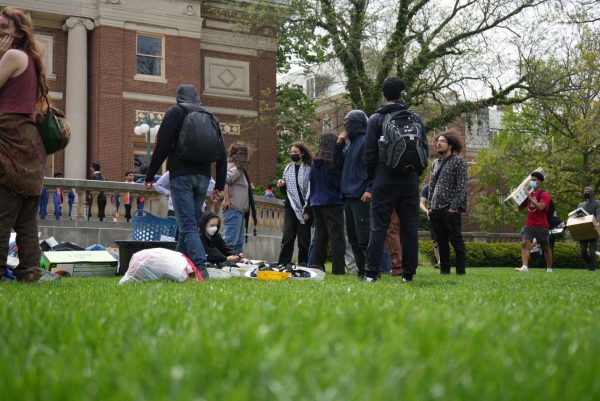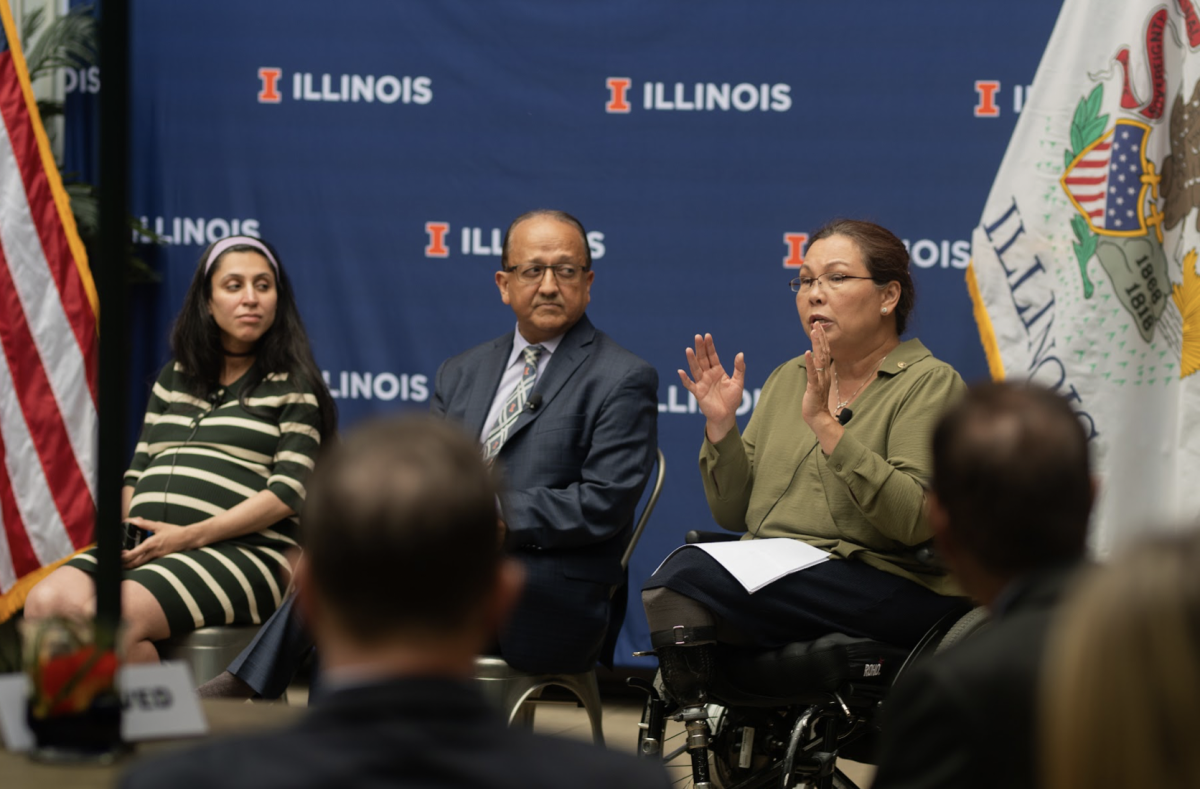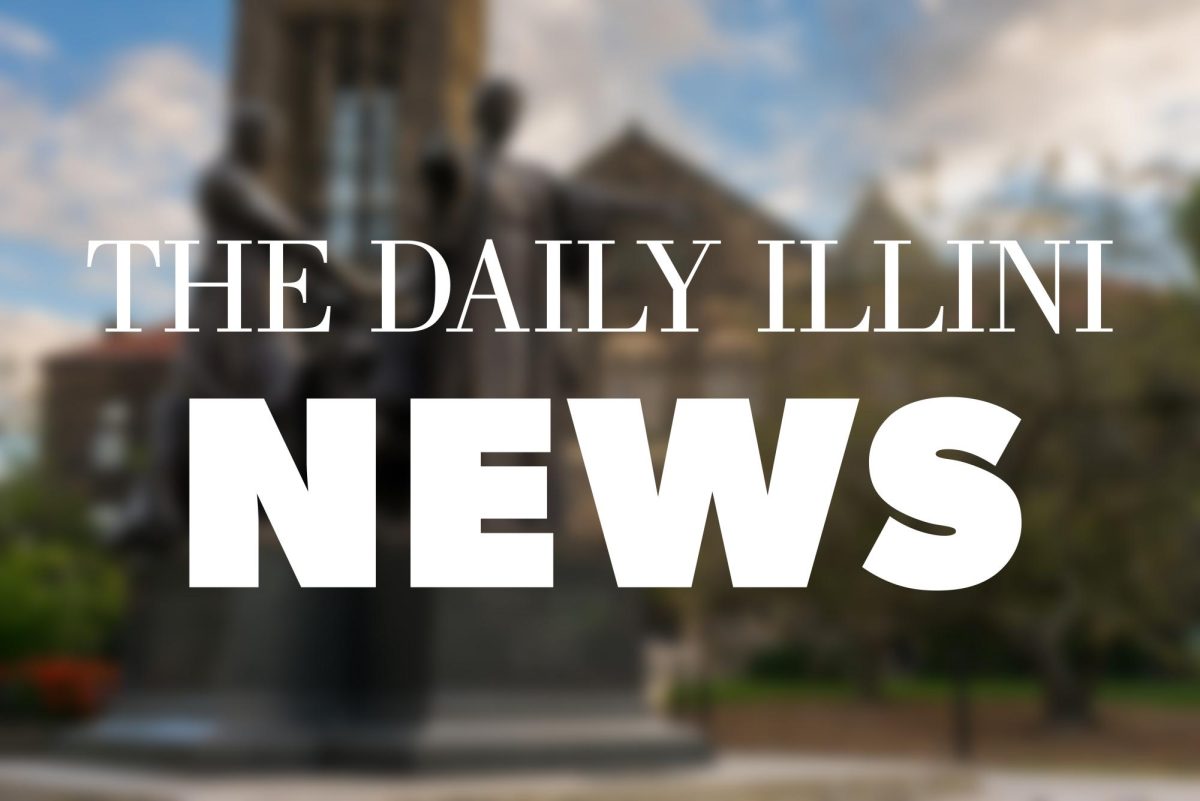Sen. Tammy Duckworth visited Research Park on Friday to participate in a fireside chat panel on innovation.
The event began with statements from Vice Chancellor and Provost John Coleman and Vice Chancellor for Research and Innovation Susan Martinis.
Friday afternoon’s event focused on the Grainger College of Engineering and the Research Park in their roles as contributors to the global economy, as well as their support of Duckworth’s efforts in the Senate.
Duckworth repeatedly highlighted the importance of the University’s contributions to global tech and commerce, stating that she always recommends Research Park to technology executives seeking to relocate their headquarters.
“‘We need engineers,’ they said,” the senator explained. “Well, I know a place where we graduate more engineers than MIT, CalTech and Stanford. Come to Champaign and you’re going to see we’ve the resources.”
Get The Daily Illini in your inbox!
Duckworth explained that many executives of influential technology companies are alumni of the University and other Illinois schools.
“That is what the research universities do,” Duckworth said. “You are providing the workforce, but then you’re also incubating all of this innovation that is happening.”
The senator sat on the panel with assistant professor Shaloo Rakheja and Dean Rashid Bashir, both of whom discussed tangible work being done by researchers at the University.
Bashir said that the University intends to attract the strongest talent from around the world and prepare them for a changing tech industry.
“I think we have such an opportunity to be able to do all things … to be the best place in the world to attract the best people,” Bashir said. “I think this issue of retraining is so important — that is just really going to be critical to the future.”
According to Bashir, the discipline of engineering has a lot to learn from studies ranging from biology to the social sciences.
“There is so much possibility to use your skills, to use what you’re learning to really make an impact on the world — think big.”
Rakheja said that a new minor in superconductor engineering is a unique program that will enable students from across the student body to study engineering from a more holistic perspective.
“(Companies) are chiefly excited about the … minor program,” Rakheja said. “I wouldn’t say it’s the first one, but it’s probably one of the most unique ones.”
Rakheja explained that the college is making an effort to integrate different kinds of study into engineering coursework so that members of the student body are prepared to work in a new world with emerging technologies.
“Students come in and take a major, they take a minor — and all of these disciplines have very strict knowledge,” Rakheja explained. “New technology is very complex, so what our companies really want is to be able to train students in the process of (engineering) without traditional boundaries.”
Duckworth echoed Rakheja’s sentiment, saying that larger corporations are seeking students with a wide variety of skills.
“Blur your boundaries,” Duckworth said. “That is where you’re going to be the most productive and that is where you’re going to be able to market yourself the best.”








